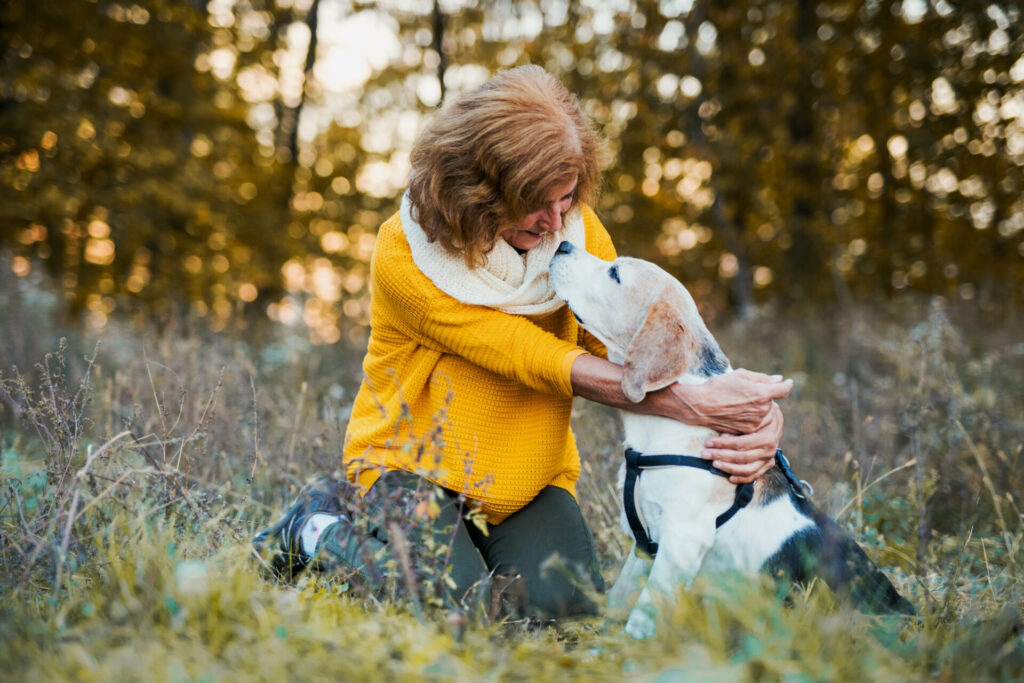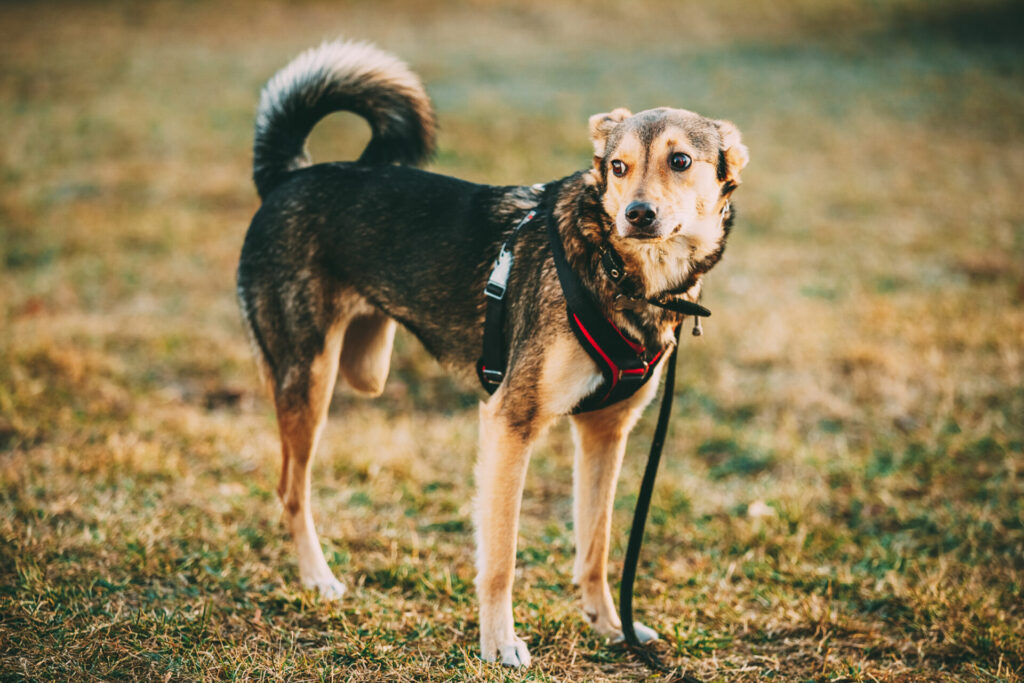The most common joint injury in dogs is partial or complete tear of the stifle (aka the hind knee). So common is this injury, that the National Institute of Health has produced an increasing number of peer reviewed journals on the matter that explore a wide variety of topics from which surgery choices are most effective, and even many alternative therapy choices:
“The cranial cruciate ligament (CCL) is necessary to stabilize the stifle joint in dogs; however, its rupture is one of the most common causes of hind limb lameness and the most common stifle joint diseases in dogs.” (1)
Many have speculated about the exact cause for such a high number of knee ligament tears in dogs. Many have turned to surgeries that reconfigure the knee joint, such as TPLO surgery, claiming that the original structure of the knee itself is to blame. While others believe that there is nothing innately wrong with the knee joint of a dog, but rather the ongoing care of a dog, such as regular exercise and maintaining an appropriate weight for the dog’s bone size are the best medicine and prevention.
Regardless, there is no conclusive evidence that suggests the exact cause for so many ‘ACL’, tears in dogs, just that they happen, a lot! How you, the owner, chooses to proceed in the treatment of your dog’s injured knee will depend on a variety of factors.
If you are considering surgical alternatives, you may be wondering if a dog brace is suitable for your situation, or if you have chosen surgery, perhaps you are considering using a knee brace in post operative care.
There are two primary situations when a dog knee brace is appropriate:
- For strains, sprains, and partial tears of the CCL (Not Full Ruptures)
- As an additional tool in post operative care protocol.
Finally, if you do choose to use a dog brace you will want to use one that is non-rigid, and be sure that your dog is professionally fitted for their knee brace. This is the only way that the brace can be of service to the dog’s recovery.
Dog Knee Braces As Preventative Care After Strains, Sprains, and Partial Tears Occur
When it comes to dog knee injuries, they abide on a spectrum from mild strains, micro tears, to full ruptures. When your dog experiences a knee injury, the first course of action is to ascertain the degree of injury. This will help you set up an action plan.
If your dog has experienced a complete rupture it may be best to proceed with surgery particularly if your dog is large and heavy. The dog knee brace becomes important for the grey area between a healthy knee and a sprained knee.
Many minor tears, strains, and sprains if left untreated lead to full ruptures, arthritis, other more serious conditions. A knee brace, when used correctly is an excellent option for dogs who have sprained their knee, this will allow time for the ligaments to heal and develop appropriate levels of scar tissue around the joint:
“The purpose of the knee brace is to stabilize the knee by limiting flexion and extension so that scar tissue can form a callus over the tear for healing. Orthopedic braces can help your dog get back to pain-free play time more quickly.” (1)
The dog knee brace may be just the ticket for mild knee injuries in order to help prevent further injury. Of course, consult with a professional veterinarian to determine the extent of your dog’s knee injury.
Dog Knee Braces As An Additional Tool To Post Operative Care
Dog knee braces are also excellent during specific phases of post surgery care. If you do choose to undergo knee surgery for your dog, the protocol for post-operative care is crucial to your dog’s recovery.
As you begin to take your dog on walks after surgery, and sutures have already been removed (the brace can cause unwanted humidity build up that may lead to infection in the stitches), you may want to have your dog fitted for the knee brace. At this time the knee brace can be helpful in limiting the mobility of your dog’s knee, so that re-injury does not occur during those delicate few months following surgery.
If you do choose to use a dog knee brace post operative, then you will want to be sure that you are incorporating other alternative care methods to maintain mobility such as physical therapy, massage, and even swimming, if you have a pool.
General Guidelines To Help You Find The Right Dog Knee Brace
There are times when you can get away with lower quality products, but choosing the right dog knee brace is not this time. If you decide to use a dog knee brace, be sure to have your dog professionally fitted, and do ample research on the company that creates the brace. Unlike human knee braces, that you can pick up at your local pharmacy, the dog knee brace must be fitted for the complexity of the dog’s knee joint. The stifle and the CCL are much more complicated structurally than the human knee.
You can find an excellent dog knee brace for around $250.00. Be sure you actually have your dog fitted for the brace, and that you understand how to adjust it and operate the brace so as to keep your dog safe!
Sources Cited
- https://www.ncbi.nlm.nih.gov/pmc/articles/PMC5155010/
- https://orthodog.com/article/dog-acl-tear-no-surgery/
- https://orthodog.com/products/dog-knee-brace/

